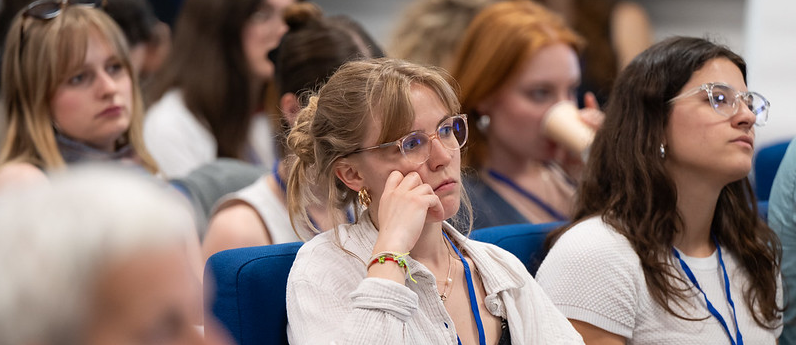From May 26 to 30, 2025, the third edition of the Erasmus+ Blended Intensive Program (BIP) organized by the Digital Constitutionalism Network took place in Salerno, Italy. Entitled “Digital Constitutionalism and Digital Sovereignty: Navigating Power and Rights in the Digital Age”, this international teaching program followed on successful BIP editions in Padua (2023) and at ZeMKI (2024).
Twelve students of the media and communication degree programs organized by ZeMKI joined the program; ZeMKI member Dr. Dennis Redeker co-organized this year’s BIP under the leadership of Nicola Palladino and Mauro Santaniello (Salerno) – and taught on site. In total, this BIP brought together more than 30 students from six European partner universities – the University of Salerno, the University of Bremen, Dublin City University, the University of Groningen, Tallinn University, and the University of Padua. BIPs are a relatively new form of funding mechanism for joint European teaching with both in-person and online components; students receive an Erasmus+ mobility award to participate.
In this case, combining a virtual preparatory phase with a five-day in-person component in Salerno, the program offered an interdisciplinary exploration of the growing tensions and synergies between digital sovereignty, human rights and global digital justice. The in-person phase began with student participation in the international GIG-ARTS 2025 Conference, themed “The Rise of Digital Sovereignty: Ambiguities and Challenges”, with which it was co-located.
Through the week, students engaged in twelve conference panels, roundtables and keynotes, e.g., by asking excellent questions, but also worked in small inter-university groups, producing policy briefs on pressing issues including indigenous data sovereignty, platform governance, and low-earth orbit Internet. The final virtual phase of the program – throughout June 2025 – will be dedicated to refining these policy briefs and preparing students to engage with real-world policy processes.
